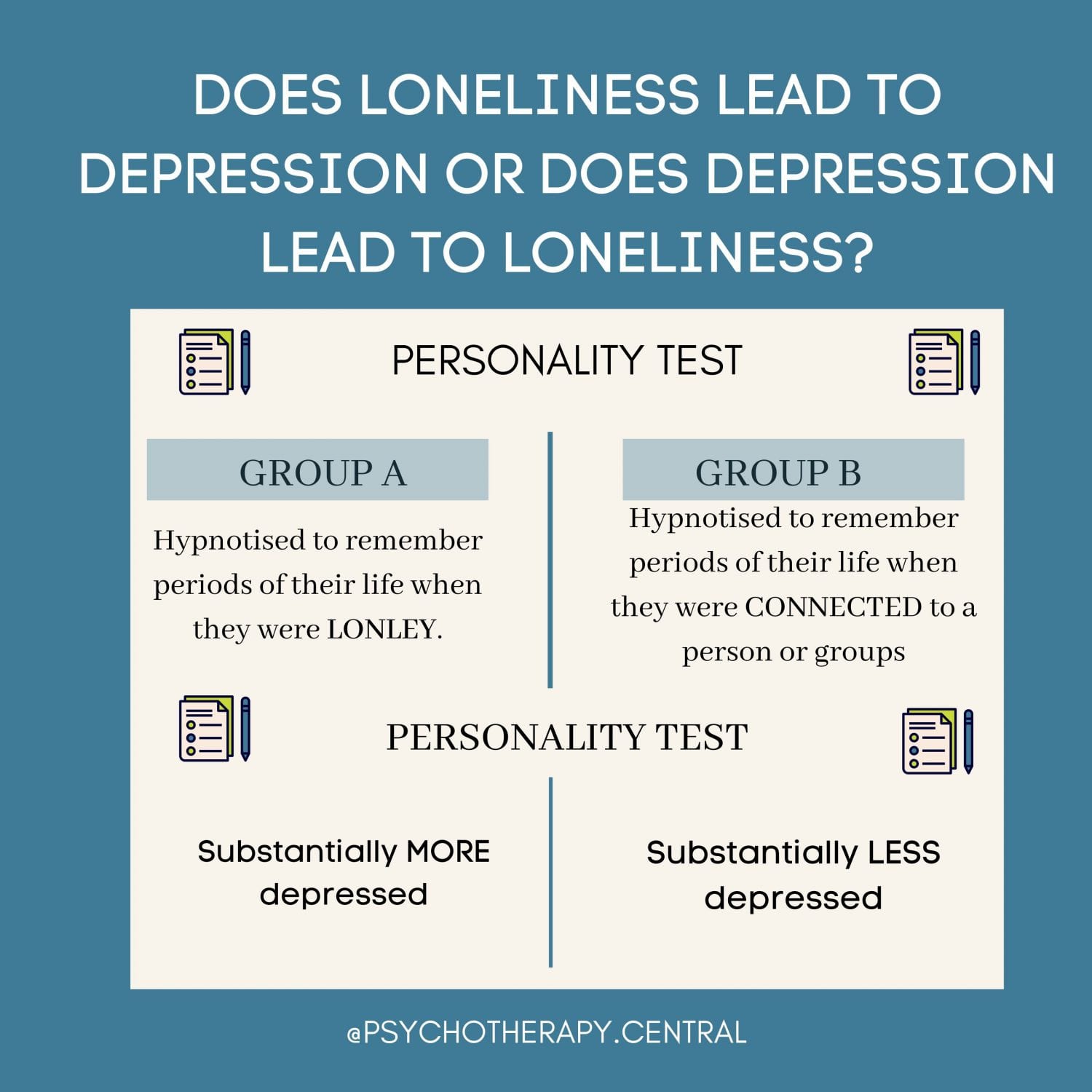Does depression lead to loneliness or does loneliness lead to depression?
This was Cacioppo’s question in the early 2000’s. In one of many studies he took 135 lonely people, divided them into group A and group B and asked them to fill out an in-depth personality test.
Group A were then hypnotised to remember periods of their life when they were lonely, and Group B to remember periods of their life when they were connected to a person or groups.
They were then asked to repeat the personality test.
The group that had focused on their loneliness became substantially MORE depressed and the group that had focused on connection became substantially LESS depressed.
What does it mean? It means that LONELINESS CREATES DEPRESSION. Depression does not create loneliness.
This makes sense when you think about our history and biology. As animals we don’t have poisonous fangs, hard shells or claws to protect us. In fact, we are a bit like huge juicy lumps of meat walking around trying to survive. We survived by being in community, we hunted and lived in tribes. We are wired to survive, to be CONNECTED to other humans.
This is why it is so important when you have experienced a trauma and there is a desire to isolate, to stay CONNECTED to other people and groups. Connection helps prevent depression.
Reference
John Cacioppo – Cacioppo et al. (2006). Loneliness within a nomological net: An evolutionary perspective. Journal of Research in Personality, 40, 1054-1085. Cited in Hari, J. (2018). Lost Connections. London, UK: Bloomsbury.

